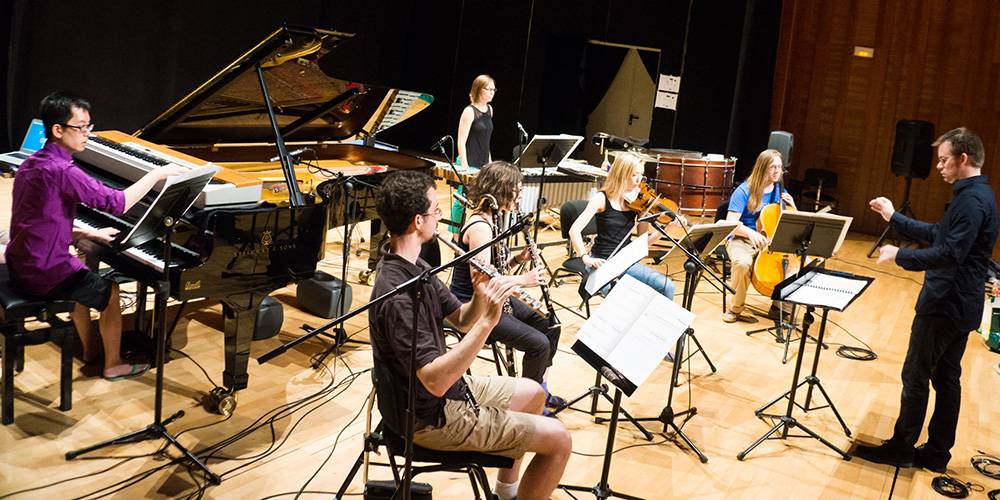Matthew Schreibeis is an American composer based in Hong Kong. His compositions, which span orchestral, chamber, and vocal music and include a series of works for traditional Korean instruments, represent a personal musical vision characterized by vivid color, imagination, and a clear sense of drama. A recipient of the Charles Ives Fellowship from the American Academy of Arts and Letters, his works have been performed throughout the U.S., Europe, and Asia by the Albany Symphony and David Alan Miller, New York New Music Ensemble, Oberlin Contemporary Music Ensemble, Mivos Quartet, soprano Tony Arnold, and members of eighth blackbird and Alarm Will Sound, among others.
The 2020-21 season includes premieres of Parallel Lives by ensemble mise-en in New York and Tree of Life for solo violin, along with the release of his Albany Records portrait CD, Sandburg Songs, featuring soprano Tony Arnold and Zohn Collective.
Honors include commissions from the Hanson Institute for American Music, Seoul Foundation for Arts and Culture, and the University of Nevada, Las Vegas; grants from the Ditson Fund of Columbia University and the Center for East Asian Studies at the University of Pennsylvania, and residencies at MacDowell, Yaddo, Copland House, Virginia Center for Creative Arts, and the Camargo Foundation in France. American Composers Forum sponsored a portrait concert of his chamber music in Philadelphia, and his music has been recorded on the Synnara label in South Korea.
An artist of wide-ranging interests, he has published (with Jiyoon Lee) on the role of music in second language teaching and is the author of a forthcoming article on the orchestral works of Bernard Rands. Most recently, he was awarded a major grant from the Research Grants Council of Hong Kong to support a multi-year study of the music of his former teacher, the late Steven Stucky, including archival work at the Library of Congress.
Matthew Schreibeis began his musical studies in Pittsburgh and received degrees from the Eastman School of Music (B.M.) and the University of Pennsylvania (Ph.D.). He studied composition with Samuel Adler, David Liptak, Eric Moe, James Primosch, Jay Reise, Christopher Rouse, Steven Stucky, Anna Weesner, and Ricardo Zohn-Muldoon. He also studied orchestration with Augusta Read Thomas and violin with Lynn Blakeslee. His mentors also include composers Robert Beaser, Bernard Rands, and George Tsontakis.
A committed educator, he taught composition at the soundSCAPE Festival in Italy and served as Visiting Assistant Professor at Saint Joseph’s University in Philadelphia and Visiting Professor at Korea University’s International Summer Campus in Seoul. Currently he is Assistant Professor at Hong Kong Baptist University.








